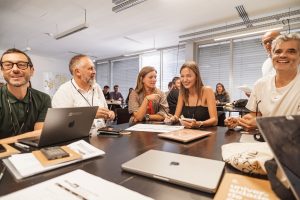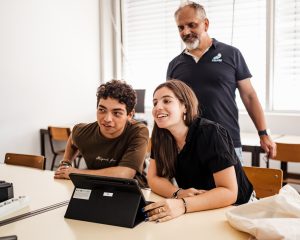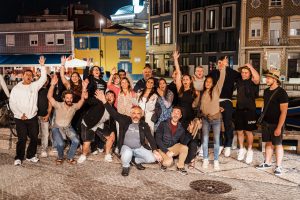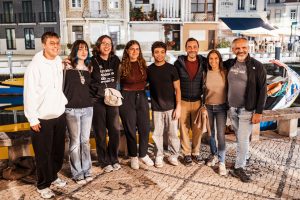UMH students and faculty go to Summer School for Abraxas European project
18 September 2025
 The University of Aveiro (Portugal) was the setting for Summer School for the Abraxas European Project – Best Practices for High-Immersion Experiences Design, an international gathering that brought together students and faculty from different universities to launch and test materials and contents developed throughout the project.
The University of Aveiro (Portugal) was the setting for Summer School for the Abraxas European Project – Best Practices for High-Immersion Experiences Design, an international gathering that brought together students and faculty from different universities to launch and test materials and contents developed throughout the project.
In this edition, participants included students from the universities of Lodz (Poland), Vigo (Spain), Miguel Hernández (Spain), and that of Aveiro (Portugal). During its Summer School, the participants were able to experience first-hand the tools, methodologies, and resources designed within the framework of the Abraxas project, with the aim of evaluating their practical applications in educational and research contexts.
This meeting not only enabled validating the collaborative work completed by the different project members, it also generated a space for academic and cultural exchanges among students and faculty from different European countries.
With their Summer School, the Abraxas project took a decisive step towards the consolidation of its outcomes, reinforcing its impact within the realm of teaching innovation and the creation of new educational materials focused on communication and audiovisual arts.
On behalf of the Miguel Hernández University of Elche (UMH), professors Francisco Julián Martínez Cano and Begoña Ivars Nicolás represented the Bachelor’s in Audiovisual Communication and the Dual Bachelor in Audiovisual Communication and Journalism alongside students, Irene Díaz Reinosa, Samuel González Alcobre, Lucía López Romero, Vera Quirant Santos, and Guillermo Toralla Martínez, who actively contributed to the development of training and evaluation activities.
This project, Abraxas – Best Practices for High-Immersion Experiences Design, which is funded by the Erasmus+ KA220-HED action, strives to strengthen the skills of future designers of 3D experiences and instructors in immersive environments. Throughout the life of this project, training materials, digital content, teaching tools, and virtual scenario prototypes have been devised for teaching immersive narratives. This initiative fosters educational innovation by integrating emerging technologies and student-center methodologies, which fosters creativity, inclusivity, as well as transnational collaboration between academic institutions.


